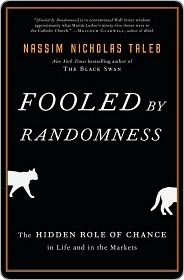Much of the thinking about the negative value of information on society in general was sparked by Robert Shiller. Not just in financial markets; but overall his 1981 paper may be the first mathematically formulated introspection on the manner in which society in general handles information. Shiller made his mark with his 1981 paper on the volatility of markets, where he determined that if a stock price is the estimated value of “something” (say the discounted cash flows from a corporation), then market prices are way too volatile in relation to tangible manifestations of that “something” (he
...more
This highlight has been truncated due to consecutive passage length restrictions.


